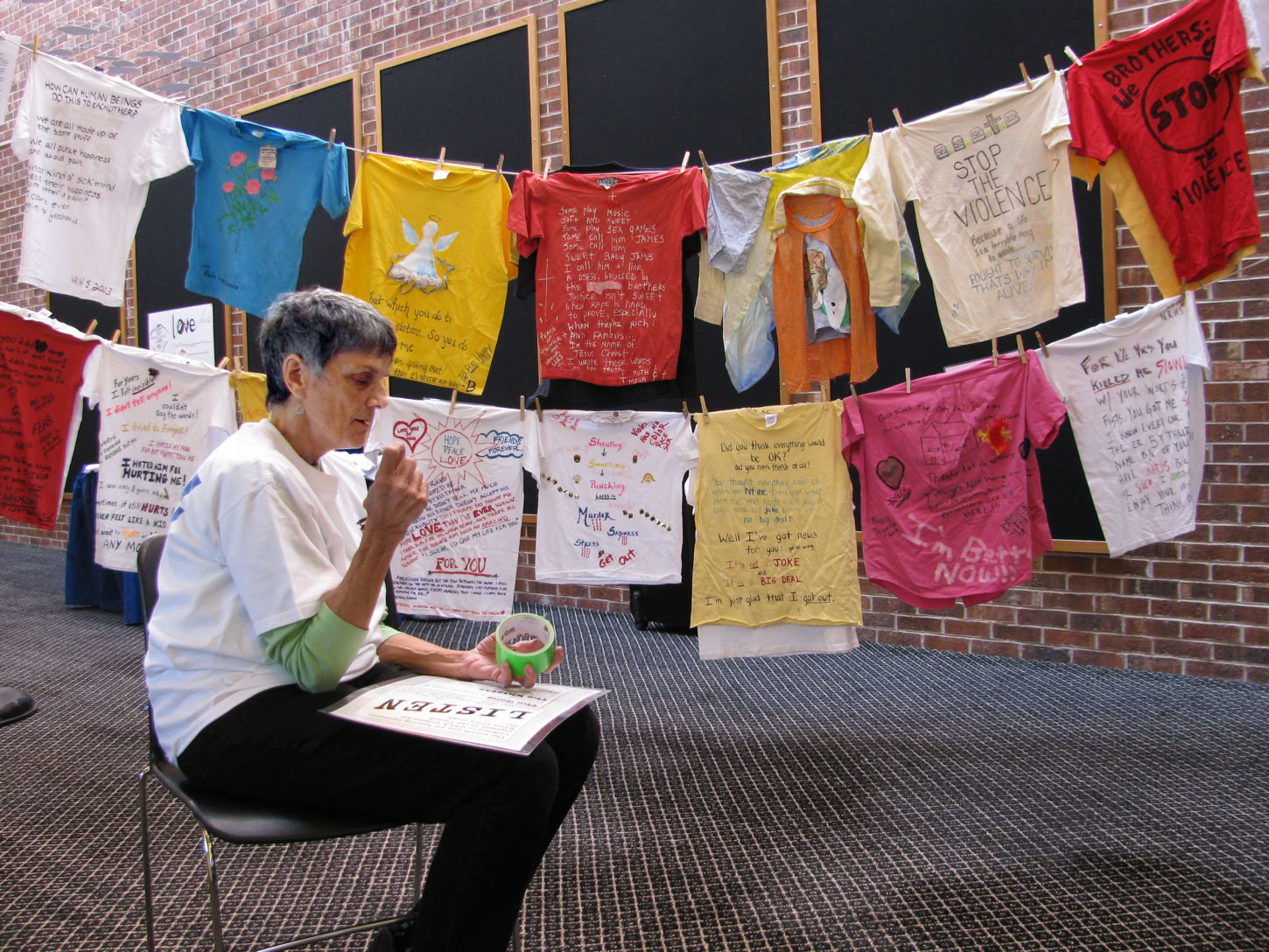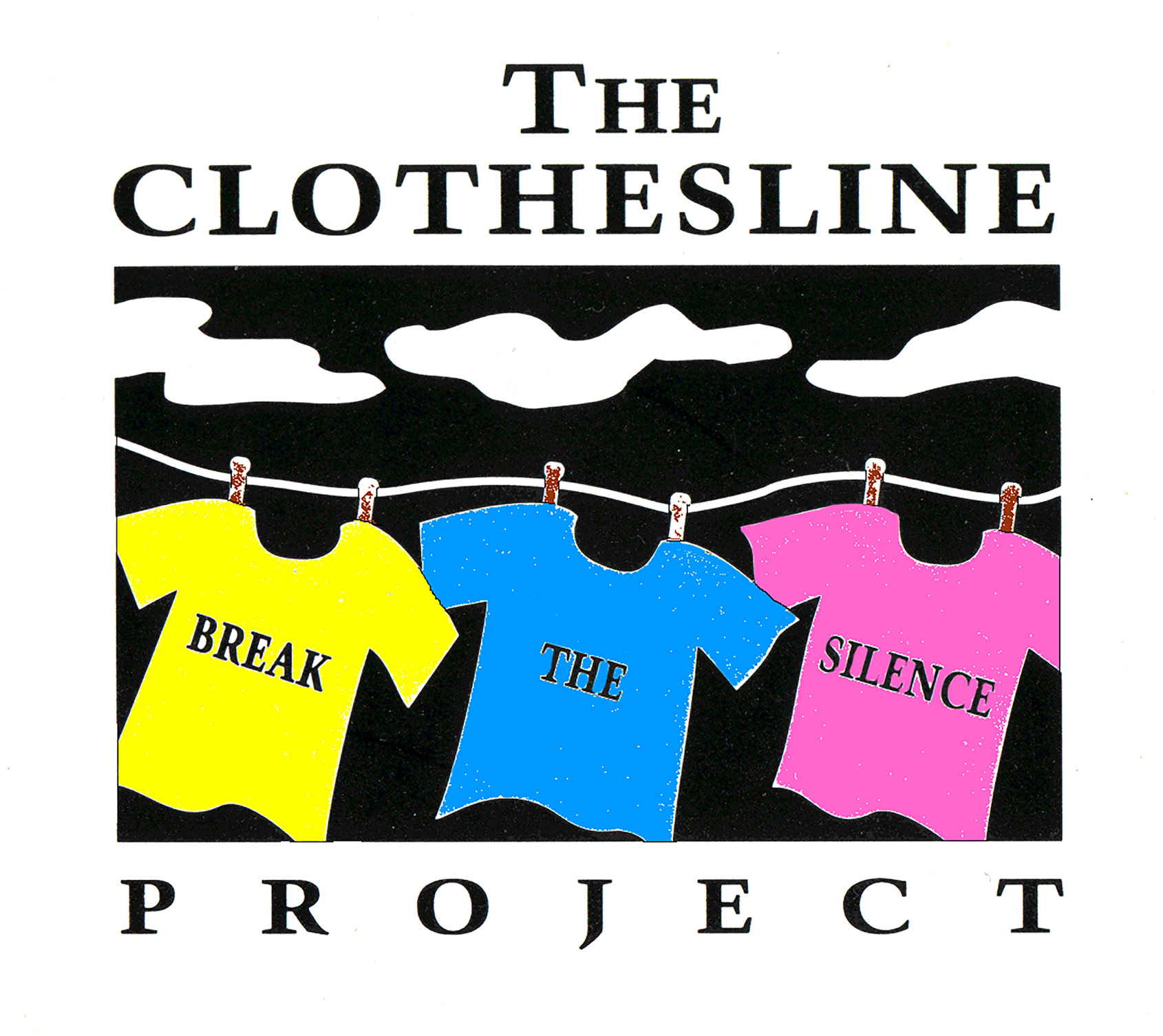History of the Clothesline Project
"Bearing Witness to Violence Against Women since 1990”
According to the Men's Rape Prevention Project in Washington DC, 58,000 soldiers died in the Vietnam war. During that same period of time, 51,000 women were killed mostly by men who supposedly loved them. In the summer of 1990, that statistic became the catalyst for a coalition of women's groups on Cape Cod, Massachusetts to consciously develop a program that would educate, break the silence and bear witness to one issue - violence against women.
This small, core group of women, many of whom had experienced some form of personal violence, wanted to find a unique way to take staggering, mind-numbing statistics and turn them into a provocative, "in-your-face" educational and healing tool.
One of the women, visual artist Rachel Carey-Harper, moved by the power of the AIDS quilt, presented the concept of using shirts - hanging on a clothesline - as the vehicle for raising awareness about this issue. The idea of using a clothesline was a natural. Doing the laundry was always considered women's work and in the days of close-knit neighborhoods women often exchanged information over backyard fences while hanging their clothes out to dry.
The concept was simple - let each woman tell her story in her own unique way, using words and/or artwork to decorate her shirt. Once finished, she would then hang her shirt on the clothesline. This very action serves many purposes. It acts as an educational tool for those who come to view the Clothesline; it becomes a healing tool for anyone who make a shirt - by hanging the shirt on the line, survivors, friends and family can literally turn their back on some of that pain of their experience and walk away; finally it allows those who are still suffering in silence to understand that they are not alone.
October of 1990 saw the original Clothesline Project with 31 shirts displayed on the village green in Hyannis, Massachusetts, as part of an annual "Take Back the Night" March and Rally. Throughout the day, women came forward to create shirts and the line kept growing.
Cape Cod Community College sponsored a Clothesline Project display and lecture in April 2012. CP founder, Carol Chichetto, is shown here speaking at the event to several classes at the College. Carol died in 2023, but her concept lives on here! Your photo submissions are welcome. Email your largest size photos to: webmaster@theclotheslineproject.org
After a small blurb appeared in Off Our Backs magazine that was picked up by Ms magazine, everything changed for the Clothesline Project. In the following years, the Ryka Rose Foundation and Carol Cone's advertising agency took an interest in our work and helped create a national push with small pieces appearing in USA Weekend magazine, Shape magazine and others. This outreach created an overwhelming national response and brought the Clothesline Project from a single, local, grassroots effort into an intense national campaign.
At the moment we estimate there are 500 projects nationally and internationally with an estimated 50,000 to 60,000 shirts. We know of projects in 41 states and 5 countries. This ever-expanding grassroots network is as far-flung as Tanzania and as close as Orleans, Massachusetts.
Survivor = A woman who has survived intimate personal violence such at rape, battering, incest, child sexual abuse.
Victim = A woman who has died at the hands of her abuser.
The Clothesline Project honors women survivors as well as victims of intimate violence. Any woman who has experienced such violence, at any time in her life, is encouraged to come forward and design a shirt. Victim's families and friends are also invited to participate.
It is the very process of designing a shirt that gives each woman a new voice with which to expose an often horrific and unspeakable experience that has dramatically altered the course of her life. Participating in this project provides a powerful step towards helping a survivor break through the shroud of silence that has surrounded her experience.


